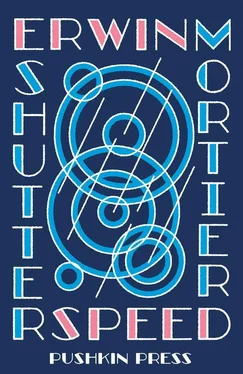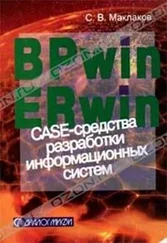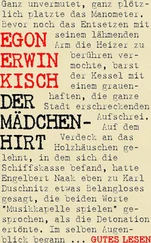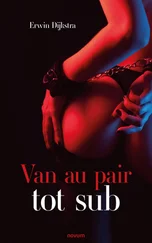My existence there is limited to seeing, hearing, tasting and smelling. When I look in the mirror I can see through myself. Maybe I’m in heaven.
A few days before Uncle Werner died I helped carry him from his sickbed by the window to the table. While Aunt was in the kitchen heating the milk I cut his slice of bread into strips, watched him eat them with tremulous movements and heard him take greedy gulps from the large bowl he held to his mouth with fingers like desiccated wings.
He had turned into an overgrown, hoar-frosted child howling in the night because of his dreams, from which he woke in terror. Using my handkerchief for want of a napkin, I wiped the cream off his upper lip while our eyes met. I saw death in his bewildered gaze, which was something I had only read about in books and which seemed rather far-fetched and sentimental at the time, but I saw it in the whites of his eyes and in his dilated pupils gorging themselves on the living world for as long as they were able.
He only spoke once. ‘Joris,’ he said. I had a feeling it was more an unconscious reflex at the sight of my face than true recognition, but I responded with ‘Pa’, anyway.
Aunt sat at a corner of the table and watched, seeking to glean some slight comfort from every sip of milk he took, every morsel of bread, although she knew it was hopeless.
Each time I visited she put her hands on my shoulders and said: ‘Still growing, I do believe’, whereas it was she who was shrinking in my arms.
I cannot think back to the pair of them without being reminded of my school compositions. Not because of their headings, but because of the illusion that every utterance from those days could still safely be erased. I see myself happily brushing the rubber crumbs off my page, unperturbed by the gouges left in the paper by my sharp pencil.
When we had carried Uncle back from the table to the bed, Aunt said that quite honestly she hoped it would be over soon. It might sound a bit strange to hear someone say this about the person with whom they had shared everything for the past fifty years, but as far as she was concerned it was preferable to be sad about him being dead than about him having to suffer so much in life, such as it was. This was no life, she said, not for him and not for anyone else.
She sat on the chair by the bed in which Uncle lay on his side, his face to the window. Her hands lay on her lap; she wore the nylon flowered apron which, in the old days, she would put on in the kitchen and whip off before sitting down to a meal, but which she seemed to wear all the time nowadays. When Uncle became restless she would automatically put her hand on his arm without interrupting her litany, and rub her thumb over the back of his hand until he quietened down.
I think you could call their marriage a happy one. It had a special aroma, of which I was probably more aware than they ever were. It wafted across my face every day. It lingered in the fibres of the bath towels, it floated over the lavatory when I lifted the seat and could smell their water. They never flushed after a pee, presumably out of thrift, and considered it very affected of me when I started doing it.
They thought that life in the city was to blame, that it was one of those wasteful habits I had picked up from my mother. But I didn’t do it because I recoiled from their intimacy, I did it because I wanted to smell my own water. I felt hurt when they called me a townie, even though I knew they meant it kindly.
I was not there when he died and I regret that now. My regret has grown fiercer over the years and at the same time gentler, for regret seems to me to be the guaranteed interest that life pays out in ever more generous instalments. I called his name. He craned his neck and raised his hand in a reflex as I passed the window on my way down the garden to the road. Three days later he was dead.
After the funeral Aunt kept the hospital bed. She was finding it harder and harder to climb the stairs. So every night she left her clothes on the very chair she had sat on during her vigils at Uncle’s bedside until his heart gave up, crossed herself, and heaved herself into the bed downstairs.
I did not call very often, and never stayed long enough. I saw her arranging biscuits in a circle on a plate which she sent sliding across the table towards me like a lifebuoy.
‘Have another,’ I heard her say. ‘They’ll only go stale otherwise’, which was her way of pleading for me not to go just yet.
I don’t recall her ever voicing concerns about what state she would be found in, but I do know that last thing at night she never failed to rinse her fork and spoon, set her plate and cup in the drying rack over the sink, hang the towel on its peg on the back of the kitchen door, drape the folded dishcloth over the tap, and moreover that she never failed to put her slippers side by side under the chair before getting into bed. No chance of being caught unawares, the way an unguarded moment is captured on camera.
She died in her sleep, head lolling sideways, newspaper on her lap. I received a phone call from the woman next door who looked in several times a day and whose conversation was larded with the sort of idle gossip I used to overhear in the shop, where the dead littered the conversations like discarded shopping lists.
She had eaten well that afternoon, and had looked well, too, said the woman; she had apparently been dead only a few hours when they found her, and according to the doctor had probably never known, just slipped away. The neighbour had been given my number some while ago in case anything happened, and she told me to look in the top drawer of the dresser. Aunt had left a note there, for the sake of convenience.
‘No flowers, Joris,’ it read, ‘and I want the cheapest coffin. Don’t forget to go to the bank. Pay the undertaker with what’s in the account and keep the rest for yourself. The notary will see to everything. You can rent out the shop if you like. The roof is still good, only the windows are in bad shape. Your ever loving Aunt Laura. Give my regards to your ma.’
*
The house had long since grown too big for her, for all that it had shrunk to a few downstairs rooms. The shelves in the shop, unused for the last eight years or so, still held an assortment of unsold food tins, and also some bottles of liqueur, which had turned to sugar. Now and then when I visited she would open one, making the crystals crunch under the screw top.
Practically every drawer I looked in contained old savings stamps, forgotten coupons, bits of string, corks, all the bits and bobs she always stored away because you never knew when they might come in handy.
The wardrobe upstairs was still filled with their clothes. Uncle’s bowler hat, the only remnant of his wedding outfit, still lay on the shelf, and from a hanger swayed a clear plastic shroud containing Aunt’s coat with the fur collar, her only smart outer garment, which she was so anxious to keep in pristine condition that one day, during Mass, in the sanctified hush of the consecration, a single stray mothball dropped out of the lining and bounced away over the flagstones. She pretended not to notice, although she paled.
An antique dealer was interested in the counters and display cabinets. I told him he could take everything if he cleared out the rest of the house as well. All I kept were the albums and a malachite paperweight, which I don’t recall seeing anywhere but on the edge of Aunt’s dressing table, and never holding down papers or envelopes.
I came upon the box she kept their love letters in, an old chocolate box tied with a ribbon, but the letters had gone. Aunt must have torn them up, or burned them. As a boy I never dared to snoop in that box, for fear that the satin paper lining would rustle all too accusingly if I raised the lid. No one will ever know what they wrote in those letters, but I can imagine the stilted expressions of their affection without having read them.
Читать дальше












